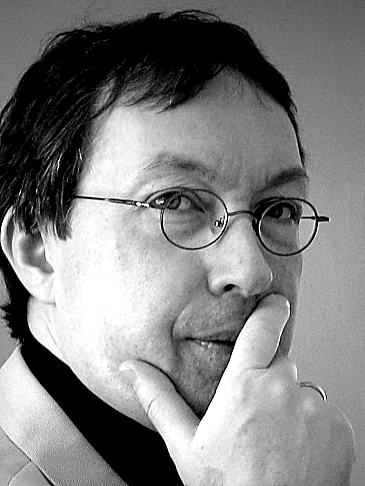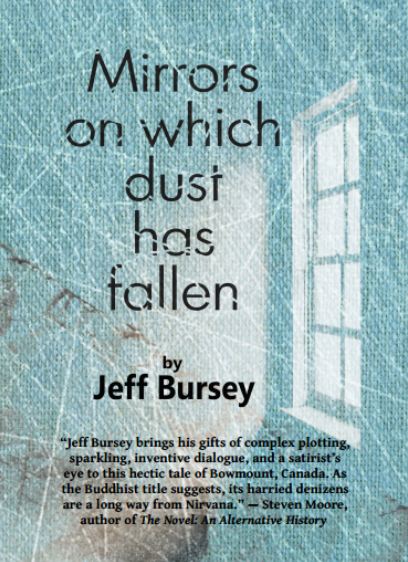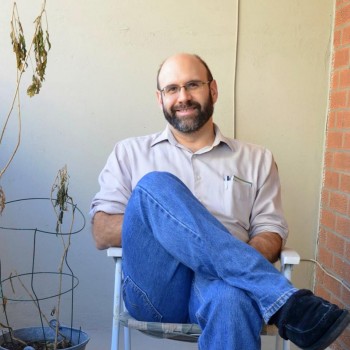Mirrors on which dust has fallen
Jeff Bursey
Verbivoracious Press
344 pages, Paperback $22.99 CAD
ISBN: 978-981-09-5437-6
.
NOBODY WOULD ACCUSE JEFF BURSEY of being lax in his demands on literature. In much of his book reviewing and other literary criticism – including pieces published here on Numéro Cinq – Bursey argues vehemently against a prescriptive approach to fiction. He trumpets the elasticity of form; he challenges his fellow novelists to eschew tried-and-true strictures on structure; he shames those who take a paint-by-colours approach to characterization; he begs us to embrace experimentation in the truest sense of the term. Mostly, he hates it when writers make rigid statements about what can/can’t be done, should/shouldn’t be done, or must/mustn’t be done when it comes to a creative work.
This mindset is very much on display in Bursey’s own fiction. His debut novel, Verbatim, published in 2010 by Enfield & Wizenty, is written almost entirely in Hansard, the official transcriptive record of a Westminster-style parliament. The book is a kind of literary curios: in it, Bursey shows how much of the muck and mess and pulse of a place –in this case, the city of Bowmount in an unnamed, fictitious Canadian province – he can capture via the verbatim excretions of elected officials. Here Bursey hews closely to perhaps an overtired tenet of fiction (write what you know), as he himself works for Hansard in the provincial legislature of my home city of Charlottetown, Prince Edward Island.
Full disclosure: During biannual visits home from Toronto, I will summon Bursey to attend a social gathering I affectionately refer to as the Prince Edward Island Writers Mafia (members include J.J. Steinfeld, David Helwig, Judy Gaudet, Steven Mayoff, and Beth Janzen) in which Bursey’s position resides somewhere between secretariat and chief thumb breaker. Bursey and I see eye to eye on many – though not all – literary conventions and trends, and I’ve generally judged his reviews, even the harsher ones, as well above the belt. One thing is clear from both reading and socializing with him: he is adamant in his insistence that novels be, well, novel.
Which brings us to his latest offering, Mirrors on which dust has fallen, an explosively unconventional, deeply disturbing, and relentlessly original work. This is not, in effect, your daddy’s Canadian Literature. The novel is set in Bowmount in the late 1990s, same as Verbatim; and rather than dropping the reader in medias res, the opening pages provide us with both general details of the town and some specific issues of the day. One of the larger challenges the city is facing, it seems, is to engender a sense of community among a certain contingent of its populace: “Clearly, for those alleged troublemakers Bowmount was not a community but a point on a map, not a City rich in varied history but a town with a grandiose self-conception.” While these prefatory remarks appear a bit rough around the edges – why is city capitalized here? what is “self-conception”? do we mean “self-perception?” – Bursey does a good job of situating us in a fully imagined and concrete place. (With the novel opening in such a prefatory way, it is unfortunate, and somewhat redundant, that publisher Verbivoracious Press decided to include an incoherent, academically pretentious, and wholly unnecessary introductory essay by Christopher Wunderlee.)
The narrative picks up heft as we begin to meet, through alternating chapters, the book’s motley ensemble of characters. There is Loyola, a university-drop out who works a soul-sucking job at a clothing wholesaler. There is his sleazy, supremely confident friend Jules Deeka, offering all manner of temptation from the wings. We meet a deeply compelling woman named Ivy, who struggles with the onset of middle age and its concomitant frustrations. We get a view into a radio station looking to update itself with the times (at the expense of several of its employees) and we also encounter the local Catholic church grappling with a sex abuse scandal. We lounge around in perhaps Bowmount’s most down-market watering hole, Johnny Bar’s, and we learn about three cops killed in a hostage taking at the local pet shop.
Bursey presents each of these threads in fragmented form, the chapters twitching and looping and hopping from one narrative to the next. Unsurprisingly, these strands intersect in surprising ways, and we soon learn about Bowmount’s darker auras glowing just below its skein of lower-middle class normalcy. What impresses most is the level of occupational detail that Bursey weaves into these stories. He is equally comfortable writing about the logistics of clothing wholesalers and the challenges of running a small radio station as he is about the quotidian detail of Catholic ceremonies and the grit needed to keep a seedy pub afloat. Here is an example of this kind of mastery, taken from a chapter called “The priests”:
The archbishop had descended from the refined heights of Toronto and Montreal, and regarded the priests and laymen of the Catholic Church in this province as boobs. Oh yes, intelligent decisions were made now and then, but less than the law of averages allowed; and of course, good works of a highly Christian nature were performed almost every other week. But to his mind the capillaries of the local Church were clogged by the lacklustre efforts of poor priests recruited from the local population, and by the vapouring laymen and church committees.
This level of specificity helps to offset the larger challenge that Mirrors presents to readers – that of a carefully constructed and confounding set of elisions.
What form do these elisions take? Funnily enough, they are very similar to those found in his previous novel, Verbatim. When you write a book almost entirely in the language of Hansard, (not that you have, or I have, or anyone else has, as far as I know; this seems to be strictly Bursey’s domain), you create the unusual constraint of limiting nearly all of your prose to dialogue – specifically the official dialogue of a provincial legislature. In Verbatim, the novelty of this was sharp and rendered into a very believable verisimilitude. A number of our expectations get thwarted or left out as a result: these elisions include descriptive writing, internal thoughts, and other nuanced interactions between characters.
But interestingly, much of Mirrors is also written in dialogue. There are long stretches that consist almost entirely of two or more characters riffing on each other over some element of their individual narratives, with their exchanges demarcated by dashes. Indeed, like Verbatim before it, much of Mirrors reads like a transcription – and as such, it too comes with various exclusions and limitations. Through most of the book, we get very little exposition, almost no physical descriptions of the characters, and a paucity of internal thoughts or monologues. In this sense, Mirrors is like a mirror of Verbatim. But whereas the previous novel was concerned with the “official-speak” of politicians looking to put their best foot forward and get the upper hand on opponents, Mirrors concerns itself with the rough and rowdy transcript of the street. Its characters talk at length about the filth and failure and frustrations of their personal lives. They discuss thwarted ambitions, secret desires, and their often strange or uninspired sex lives. This is the opposite of politicians’ orating formality in a legislature. This is workaday people being baldly honest in the agora of the public square.
Throughout these narratives, there is one issue, one preoccupation, one motif that occurs and re-occurs. It is an obsession of Bursey’s that I failed to spot in reading his first book and his literary criticism, or in socializing with him personally – that of the human anus. The human anus is, it should be said, the closest thing that Mirrors has to a main character. It makes numerous appearances in the different intersecting narratives of the book. At one point Ivy, suffering from some kind of gastric malady, reflects back on a sigmoidoscopy she received, “its camera transmitting pictures of pink flesh, white flesh, red veins in chain lightning patterns, the camera bungling around the nooks and crannies of her intestines during its serpentine intrusion.” At another point, two men discuss how to prepare for the inevitable unpleasantness of prison life with the aid of a carrot. In a particularly provocative section, Jules and Loyola get into a debate about sex’s more cloacal joys:
– But enjoying it? With a man?
– Before AIDS, when things were safer, you went in the back door with a woman, had a bit of anilingus.
– What? Jules explained, finishing with –a pungent meat, like game, make sure you wash before and after. The fundament is one of those places you get a lot of pleasure out of. Slapping, tickling, biting, kissing, enemas if you’re into that, so why not anal intercourse? Greatest warriors in the world did that, the army, the navy, you name it. Natural. Not healthy, not now, but natural. You’re looking pink. It isn’t the chili, is it?
Of course, not all interactions with the anus in Mirrors is consensual. The book also includes a harrowing anal rape scene, recounted by its perpetrator to the fellow lowlifes who inhabit Johnny’s Bar. This man tells how he stalked a young girl whose clothes (or lack thereof) reveal a bit too much of her backside for his liking. His subsequent assault on her on an isolated bike trail is told in chilling casualness, couched as an act of prostitution because he throws the girl forty dollars before raping her. This is as dark as Mirrors gets, and many readers who find their way to this chapter will no doubt be disturbed by it. As someone who has himself included difficult scenes of sexual assault in a novel, I have no advice or solace to provide other than this: as horrific as the scene is in Mirrors, it’s important to see how it fits into the larger thematic structure that Bursey has built for us. There are many ways this novel shows how the city of Bowmount – rendered into such stuffy officialdom in Verbatim – is still very much in touch with its lizard brain. For all the macro social engineering that occurs at the municipal level, individual citizens still feel – and resign themselves to – their basest human instincts.
The rape scene in Mirrors simply takes this to an unconscionable extreme.
Yet change is coming to Bowmount. Indeed, one could argue that change is the ultimate theme in both of Bursey’s novels. In Verbatim, it takes the form of new (and somewhat corrupted) management at Hansard that actually influences the transcripts of the legislature. In Mirrors, the change comes as an unpleasant intruder into the lives of its core characters. Many of them, it seems, wrestle with the brutality that time can exact on us all and the very instability of modern life. Yet this novel ends on a surprisingly tender note in a chapter called “A new cycle.”
What awaits our intrepid Ivy as she is about to take one step toward a man that she should have been with all along? She doesn’t know, and neither do we, but what we’re left with is the knowledge that it’s probably very important to take that step forward anyway. It’s important that dust not settle on the mirrors we hold up to ourselves.
—Mark Sampson
Mark Sampson has published two novels – Off Book (Norwood Publishing, 2007) and Sad Peninsula (Dundurn Press, 2014) – and a short story collection, called The Secrets Men Keep (Now or Never Publishing, 2015). He also has a book of poetry, Weathervane, forthcoming from Palimpsest Press in 2016. His stories, poems, essays and book reviews have appeared widely in journals in Canada and the United States. Mark holds a journalism degree from the University of King’s College in Halifax and a master’s degree in English from the University of Manitoba in Winnipeg. Originally from Prince Edward Island, he now lives and writes in Toronto.


